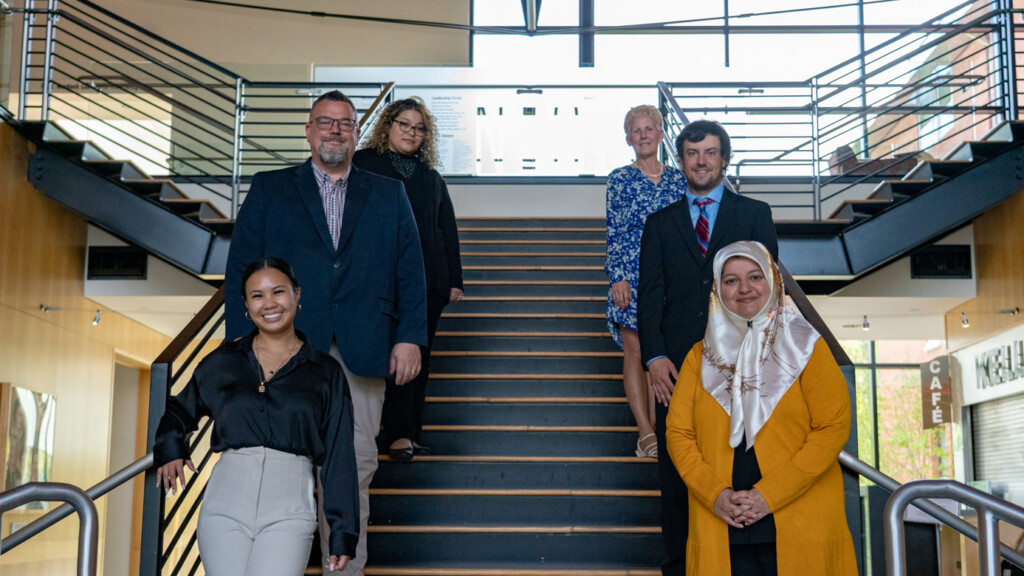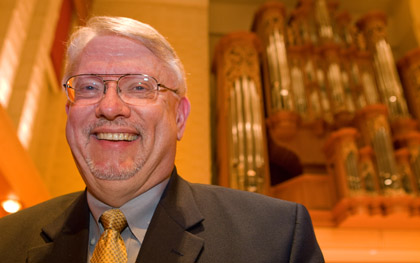Page 13 • (343 results in 0.054 seconds)
-
YOU ARE INVITED TO MEET OUR UTILITY ENGINEERS, ENGINEERING TECHS, AND STAFF! Explore Power & Water engineering disciplines by joining us for one of the two hour sessions we have during National Engineering Week! WHAT IS A MIX & MINGLE? The Mix & Mingle is your opportunity…
date. Upon registering you will receive an email for a Zoom Link to join us. Tuesday, February 23 from 3pm – 5pm Friday, February 26 from 10am – 12pm IS THE MIX & MINGLE FOR YOU? Whether you are an engineering student enrolled in an engineering program, a student at a local community college taking pre-engineering courses, or are a high school student not completely sure what your plans are but interested in learning more, the Mix & Mingle is meant for you. HOW DO I SIGN UP? If you are
-
TACOMA, WASH. (April 11, 2020) — Pacific Lutheran University is announcing a new major in criminal justice. Officially launching in fall 2020, the new program is designed for students interested in a wide variety of career fields, including law, policing, corrections, and victim services and…
PLU. “Previously, students at PLU who were interested in careers in policing, law, corrections, and victim services majored in sociology and unofficially specialized in criminal justice by selecting existing courses such as Delinquency and Juvenile Justice, Deviance, and Criminal Justice to complete their sociology major,” explains professor Kate Luther, chair of the newly redesigned Department of Sociology and Criminal Justice. “The new major in criminal justice formalizes these aspects of the
-

Senior Elana Tracy ‘21 has mixed feelings now that her studies at Pacific Lutheran University are coming to an end. On the one hand, PLU allowed her to discover a passion for global studies while studying abroad in Great Britain; but on the other, she…
and is a double major in environmental studies and global studies with a concentration in development and social justice. She’s served as an ambassador for the PLU Office of Admission. She was a standout pupil in Associate Professor of Philosophy Sergia Hay’s recent courses on environmental studies and environmental ethics. “She’s brilliant, committed to equity, curious about big problems and their potential solutions, and she has a good sense of humor,” Hay said. “She has really embraced her PLU
-

You may have heard professors say that they still feel like students, learning every day. But Visiting Instructor of Chinese Xi Zhu is a true embodiment of this idea. You may have heard professors say that they still feel like students, learning every day. But…
majority of unearthed Chinese materials available in electronic form, Zhu can work from whichever country he likes, as long as there’s Wi-Fi. As an instructor, Xi Zhu has prior experience teaching Chinese language and literature courses at the University of Colorado Boulder and at the UW. Still, Zhu acknowledges that he is “a rookie” among PLU’s other professors. With this difference, though, Zhu suspects there are strengths. “As a student, I feel like I can relate my study and the learning experience
-

The world of business is always changing. Markets trend up and down, technologies evolve, and ethical standards constantly progress. To many private-sector veterans, this rate of change can be daunting, but to students and faculty members at Pacific Lutheran University’s School of Business, they are…
business professor, came to PLU from a large research institution. She immediately noticed a stark difference in how her new institution approached the field. “At PLU, the business curriculum is mostly designed around soft skills, meaning how you build insightful inquiries, how you’re able to connect the dots, connect the concepts that you’re learning across your business and general courses.” “All companies can have their own set of desired skills and they can train their employees. Here, we’re not
-
There are some great benefits to joining a new program at PNWU School of Physical Therapy. Some highlights: small faculty to student ratios, state-of-the-art cadaver dissection laboratory, simulation center, and the Center for Applied Movement Sciences lab. The Center for Applied Movement Sciences lab is part of…
the anatomy lab, polo shirts for clinic, and a PT kit for your clinical courses. PNWUs priority is to accept students from the Northwest, rural or medically underserved communities. With that in mind, they want to remove any potential barriers for our applicants to consider the field of physical therapy. Therefore, they have waived both the application and acceptance fees for this cycle. Steps: 1. Complete your application. 2. Once they receive your application, they can determine if you have an
-

by Damian Alessandro. The scope of human history is vast, encompassing everything that has happened in past societies. However, when most students think about history, they usually focus on the dates and events that have been highlighted in textbooks. These events tend to include social…
have played in human societies. These three topics not only make history bigger and more interesting than it traditionally might be, but the courses offer useful insights into how humans interact with the innovations that we have come to value today (or love to hate). Many of the forces and ideas that are visible in today’s global economy come from these developments. Why I am majoring in History I am a History major at PLU because I feel that the program gives me great skills in research, writing
-

By David Robbins It all started so simply, yet signs were there. In the spring and summer of 1969, I was looking for my first college teaching job as I completed my graduate music degree at the University of Michigan. Like so many seeking their…
flights ahead. The 1970s at PLU were a time of change, a theme I later realized would repeat itself regularly. The 4-1-4 calendar was in its first iteration, with the January term called the Interim. Students were required to take two interim courses in their four years; faculty was encouraged to teach innovative courses outside the regular curriculum and even outside their specific disciplines. President William O. Rieke came to PLU in 1975 and soon after capital construction projects resumed
-

Finding a special place at PLU By David Robbins It all started so simply, yet signs were there. In the spring and summer of 1969, I was looking for my first college teaching job as I completed my graduate music degree at the University of…
-country flights ahead. The 1970s at PLU were a time of change, a theme I later realized would repeat itself regularly. The 4-1-4 calendar was in its first iteration, with the January term called the Interim. Students were required to take two interim courses in their four years; faculty was encouraged to teach innovative courses outside the regular curriculum and even outside their specific disciplines. President William O. Rieke came to PLU in 1975 and soon after capital construction projects resumed
-

To: All students and families From: Office of the President Date: Wednesday, April 29 at 3:30 p.m. Dear students and families, My oldest son, a first-year university student, recently quipped, “Remote learning was okay for a few weeks, but I just want to get back…
. We have also developed contingencies to provide living spaces, meals, and related services for self-isolation on campus, should it be necessary. Online learning readiness. Since 2014, the PLU Teaching Online (PLUTO) program has prepared approximately half of our faculty to teach fully online or via blended courses — courses that capture the fundamental elements and high impact practices that are hallmarks of a PLU education, but are conducted in a virtual modality. Continuous improvement in
Do you have any feedback for us? If so, feel free to use our Feedback Form.


